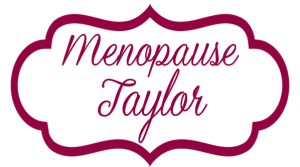Beauty and The Beast
Remember the fairytale “Beauty and The Beast”? The beauty was the lovely young, feminine, elegant, sexy, desirable, kind woman who seemed to have everything going for her. The beast was a big, hairy, ugly, mean, cursed animal who inflicted pain and misery on others.
In the story, the names “Beauty” and “Beast” clearly distinguish the two characters as diametrically opposed in terms of their significance. Ahh, but the tale ends when the beauty falls in love with the beast. So, somehow, the beauty realized that the beast wasn’t so bad after all.
So, how is it that something so wonderful as the beauty can recognize the goodness in the beast? And how is it that something as horrific as the beast can actually have some redeeming qualities?
The tale of “Beauty and The Beast” was never my favorite … until I assessed it in a slightly different way.
Day after day, I hear women talk about how estrogen is bad. It causes cancer! It will kill you!
And it makes me wonder, is estrogen both the beauty and the beast?
When women make disparaging remarks about estrogen, I respond with questions:
“So, estrogen surged through your body from the time of puberty until the time of menopause. Let’s see, that was about 39 or 40 years. And it made you feminine, soft, sexy, fertile, attractive, beautiful, strong-boned, healthy-hearted, and witty. And all that time, you loved it. You felt great.”
“But then, at menopause, you lost your estrogen. And, suddenly, you had 22 symptoms that made you feel awful. You had hot flashes, night sweats, insomnia, forgetfulness, irritability, joint pain, dry skin, hair loss, whiskers, an itchy and shrinking vagina, urinary incontinence, weight gain, and acne. You felt so miserable you thought you were going crazy.”
“So, you felt fantastic with estrogen. And you feel miserable without it.”
“At what point did estrogen convert from being the beauty to becoming the beast?”
The funny thing is that those women never have an answer.
So, I ask you: Can it be both?
Is it “the beauty” while your own body still produces it, but “the beast” once it doesn’t?
Or is the estrogen your body produced “the beauty,” but estrogen that you take as replacement “the beast”?
And why is it that you think it’s the beast only after you’ve lost it? Was it the beauty making you a beauty while your body still produced it, but became a beast once it didn’t?
I don’t understand the logic. It just doesn’t add up. Does it make sense to you?
If estrogen were the beast, we would expect it to make us feel terrible all the while that our bodies produce it. So, from the time of puberty until we transition into menopause, we would be sick all the time, have the cancers women attribute to it, and feel doomed to live with the beast for far too long.
And then. when we went through menopause and lost the stuff, we’d feel ecstatic. All the beastly effects of estrogen (whatever they may be) would disappear. And we’d feel better than ever before. Menopause would signify ridding ourselves of the beast.
Oh, and without the beast, we’d become more beautiful.
If such were the case, women would long for menopause. They would praise the day when they no longer had to be plagued by the beast.
But, oddly, the reality is that it’s the other way around.
So, my confusion lies in understanding how the very thing that make you feel wonderful is the beast. And how in the world did it transform from being the beauty to being the beast?
As far as I’m concerned, this story line about estrogen the beauty becoming estrogen the beast is more of a fairytale than the actual fairytale. It’s magical, unrealistic, full of fantasy, and completely irrational.
What do you think?


